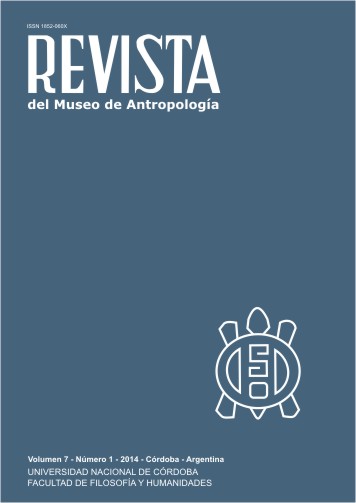Sport, sociability and political participation among master swimmers of Club Unidos de La Plata
DOI:
https://doi.org/10.31048/1852.4826.v7.n2.9184Keywords:
sports, sociability, politics, club, swimmingAbstract
This paper analyzes the ways in which social and political relations are established from a sport. It will take the case of a group of “master” swimmers (adults ) of Club Unidos de La Plata , who since the 2008 year take part of the political leadership of the institution , to show the way they relate between each other and the institutional politics, giving specific senses to their participation in “politics” . Since the practice of swimming is valued by these actors not only for its sportive dimension , but mainly for its social dimension , here we seek to reflect on the ways from participating in a sportive and sociable practice , actors with different histories and political trajectories are linked together , build relationships and dispute positions of power , such as the presidency of the club or a place in the executive committee. In turn , we will seek to reflect on the link between these relationships and other areas of local politics , considering the senses given by the actors to the participation in this space.Downloads
References
Bisso, A. 2009. Sociabilidad, política y movilización. Cuatro recorridos bonaerenses (1932-1943), Buenos Libros-CeDInCI Editores, Buenos Aires.
Bourdieu, P. 2007. O poder simbólico. Bertrand. Río de Janeiro.
Daskal, R. 2010. “Clubes, deporte y política en el Honorable Concejo Deliberante de la Ciudad de Buenos Aires (1895-1920)” en el libro Fútbol, historia y política, (Frydenberg J. y Daskal R. comp.), Aurelia Rivera Libros, Buenos Aires, 2010, ISBN 978-987-1294-32-9, pp. 201-239.
Elias, N. y Dunning, E. 1992. Deporte y ocio en el proceso civilizatorio. México: Fondo de Cultura Económica.
Frydenberg, J. 2002: “Los clubes deportivos con fútbol profesional argentinos y el tipo o formato social bajo el cual se organizan: asociaciones civiles o sociedades anónimas. Aportes para un debate acerca de realidades y modelos ideales, pasiones e intereses”, en www.efdeportes.com/ Revista Digital - N ° 51 - Agosto de 2002. Buenos Aires.
Hang, J. 2012. “Deporte, sociabilidad y clasificaciones morales entre nadadores master del Club Universitario de La Plata.” Ponencia presentada en VII Jornadas de Sociología de la UNLP. la Plata, 5 al 7 de diciembre de 2012 sitio web: http://jornadassociologia.fahce.unlp.edu.ar – ISSN 2250-8465
James, D. 2004. Doña María. Historia de vida, memoria e identidad política. Buenos Aires, Ediciones Manantial SRL
Moreira, M. V. 2010. “La política futbolizada: los dirigentes deportivos y las redes político-territoriales en Avellaneda.” Tesis para optar por el título de Doctora en Ciencias Sociales. Facultad de Ciencias Sociales. Universidad de Buenos Aires. Argentina. 237 páginas.
Porro, N. 1997. El asociacionismo deportivo como modelo organizativo. Movimiento, sistema y cambio. Apunts
Educación Física y Deporte Nº 49, Barcelona, 1997
Rosato, A. y Balbi F. 2003. Representaciones sociales y procesos políticos. Estudios desde la antropología social. Antropofagia. Buenos Aires.
Downloads
Published
Issue
Section
License
Those authors who have publications with this Journalaccept the following terms:
a. Authors will retain their copyrights and guarantee the journal the right of first publication of their work, which will be simultaneously subject to the Creative Commons Attribution License (Licencia de reconocimiento de Creative Commons) that allows third parties to share the work as long as its author and his first publication in this journal.
b. Authors may adopt other non-exclusive licensing agreements for the distribution of the version of the published work (eg, deposit it in an institutional electronic file or publish it in a monographic volume) provided that the initial publication in this journal is indicated.
c. Authors are allowed and recommended to disseminate their work on the Internet (eg in institutional telematic archives or on their website) before and during the submission process, which can lead to interesting exchanges and increase citations of the published work. (See The Effect of Open Access - El efecto del acceso abierto)












